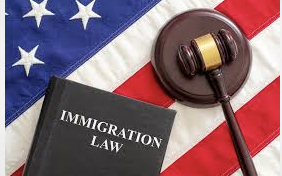Overview of Trump’s Proposed Immigration Policy
Trump’s immigration agenda is characterized by a commitment to strict enforcement measures aimed at reducing undocumented immigration and controlling legal migration pathways. Key elements of his proposed policy include:
- Mass Deportations: Trump has promised what he calls the “largest domestic deportation operation in American history,” targeting millions of undocumented immigrants, particularly those with criminal records. This could involve rapid deportation processes that bypass traditional legal hearings, raising significant legal and ethical concerns.
- Increased Border Security: Plans to expand the border wall and deploy military resources to enforce border security are central to Trump’s strategy. This militarization of immigration enforcement aims to create a formidable presence at the southern border
- Workplace Raids: Trump intends to ramp up workplace raids to identify and apprehend undocumented workers, thereby increasing the visibility and enforcement of immigration laws in everyday settings
- End of Birthright Citizenship: On his first day back in office, Trump has indicated plans to issue an executive order that would reinterpret birthright citizenship laws, potentially denying citizenship to children born in the U.S. to undocumented parents
These policies signal a dramatic shift from the more lenient approaches seen during the Biden administration, which included pathways for certain migrants and efforts to reduce deportation rates.
Impact on Immigration Lawyers
The expected changes in immigration policy will significantly affect immigration lawyers in various ways:
Increased Demand for Legal Services
- Defensive Immigration Representation: As mass deportations become a reality, there will likely be an increased demand for legal representation for individuals facing removal proceedings. Immigration lawyers will need to prepare for a surge in cases as individuals seek to contest deportation orders or navigate new enforcement measures.
- Legal Challenges Against Policy Changes: Advocacy groups and legal organizations are gearing up for extensive litigation against Trump’s policies, particularly concerning mass deportations and changes to asylum processes. Immigration lawyers may find themselves involved in class-action lawsuits or other legal challenges aimed at protecting immigrant rights
- Navigating New Legal Frameworks: With changes such as expedited removal processes and potential alterations to asylum eligibility, immigration lawyers will need to stay abreast of evolving legal standards and practices. This may require additional training or specialization in specific areas of immigration law.
Ethical Considerations
The aggressive nature of Trump’s proposed policies raises ethical dilemmas for immigration lawyers:
- Balancing Advocacy with Compliance: Lawyers must navigate their roles as advocates for their clients while also complying with new laws that may conflict with their professional ethics or personal beliefs about justice and human rights
- Mental Health Impacts: The stress associated with representing clients under such hostile conditions can take a toll on lawyers’ mental health. The emotional burden of dealing with cases involving family separations and potential deportations can lead to burnout within the profession.
Opportunities for Advocacy
Despite the challenges posed by Trump’s policies, there are also opportunities for immigration lawyers:
- Strengthening Community Ties: Lawyers can play a crucial role in community outreach and education efforts aimed at informing immigrant populations about their rights under new laws. This could involve workshops, informational sessions, or partnerships with local advocacy organizations.
- Policy Advocacy: Immigration lawyers can engage in policy advocacy efforts aimed at countering harmful legislation or promoting more humane immigration practices. By collaborating with advocacy groups, they can help shape public discourse around immigration issues.
- Expanding Practice Areas: As traditional pathways for legal migration become more restricted, there may be opportunities for lawyers to expand their practices into areas such as family reunification cases or humanitarian parole applications.
Broader Legal Context
The legal landscape surrounding immigration is fraught with complexities that will impact how Trump’s policies are implemented:
- Judicial Challenges: Many of Trump’s proposed measures are likely to face immediate legal challenges from civil rights organizations and other stakeholders who argue that such policies violate constitutional protections or international human rights laws
. Immigration lawyers will be at the forefront of these battles.
- Legislative Responses: While Trump can implement many changes through executive orders, significant reforms may require legislative approval. The interplay between executive action and congressional response will shape how aggressively Trump can pursue his agenda
.
- Public Opinion and Political Climate: The political climate surrounding immigration continues to evolve. Public opinion may influence how far Trump can push his policies without facing backlash from voters or resistance from state governments.
Conclusion
Donald Trump’s anticipated return to office heralds a new era of stringent immigration policies that will profoundly affect not only immigrants but also the legal professionals who represent them. Immigration lawyers must prepare for an environment marked by increased demand for services, ethical challenges, and opportunities for advocacy amidst potential upheaval in U.S. immigration law. As they navigate this complex landscape, their role as advocates will be more critical than ever in defending the rights and dignity of immigrant communities in America.




